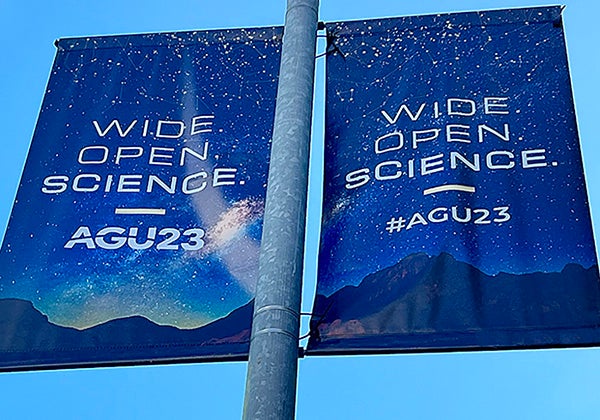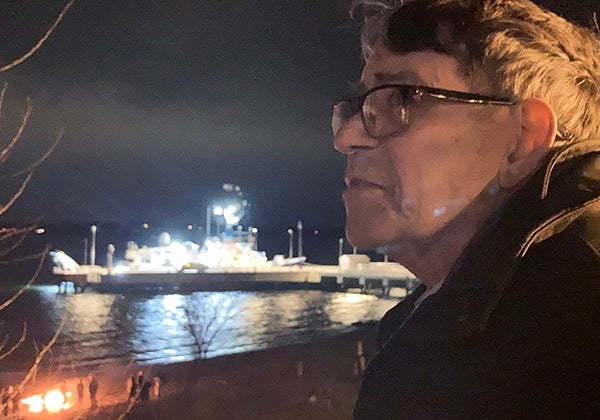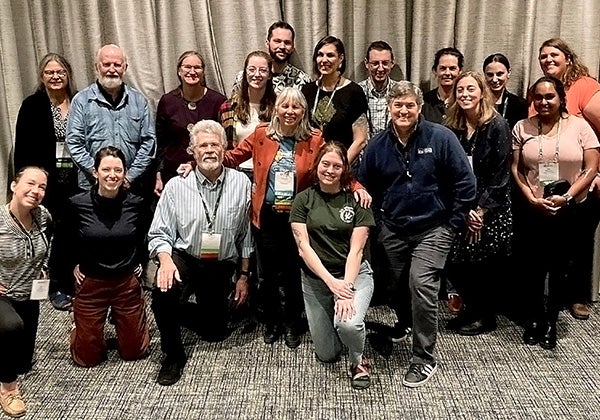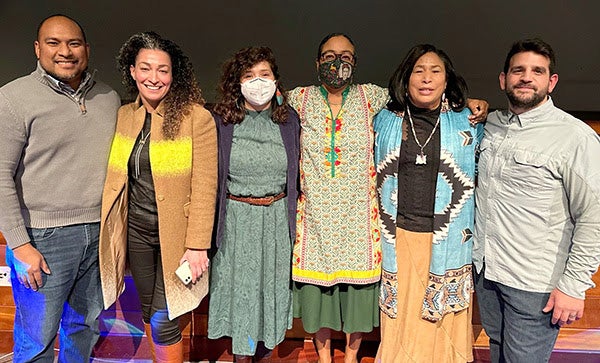Compiled by Veronica M. Berounsky, Ph.D. ’90
Share Your News With Aboard GSO1960s | 1970s | 1980s | 1990s | 2000s | 2010s | 2020s | In Memoriam
1960s
In March, The Providence Journal had an informative three-part series about the declining numbers of quahogs in Narragansett Bay, and how they might be managed to increase their numbers. Several GSO graduates who testified at a R.I. State House hearing are quoted: Candace Oviatt, Ph.D. ’67, Conor McManus, M.S. ’12, Ph.D. ’17, and Robinson “Wally” Fulweiler, M.S.’03, Ph.D.’07. Another article about quahogs in Rhode Island Current quotes David Borkman, M.S. ’00, Ph.D.’02.
1970s
A podcast by Damn Interesting tells a fascinating story of the terraced rice fields of Bali (above) and how James Kremer, Ph.D. ’76, ended up doing work there using his experience with the then new field of “computer simulation modeling.” His research helped return water temples to their traditional role in irrigation.
Paul Boehm, M.S. ’73, Ph.D. ’77, was in Mauritius, an Indian Ocean island nation, working on the Wakashio Oil Spill (July 25, 2020) damage assessment project with a team of environmental/marine scientists, lawyers, economists, social scientists and physicians.
1980s
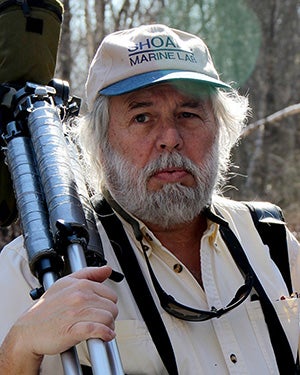
There has been a lot of discussion about the effect of offshore wind farms on whales, which prompted Robert Kenney, Ph.D. ’84, to write an article for the Rhode Island Naturalist explaining that “there is no evidence for any link between whale mortalities and offshore wind development.” Bob’s article was also cited in a front-page article in The Providence Journal on March 2.
April 1 was proclaimed “Michael Pilson Day” in honor of all his contributions to the Harpoon Seminars in its 45-year history. This year started with a welcome by Dean Paula Bontempi, Ph.D. ’01, followed by an update on Bay Campus activities by Walter Berry, Ph.D. ’87. There were presentations from Ph.D. student John Selby, Stephen Hale, M.S. ’74, local resident Mike Donohue and Jason Krumholtz, Ph.D. ’12, whose co-authors were Matt Horn, Ph.D. ’11, and Robinson “Wally” Fulweiler, M.S. ’03, Ph.D. ’07.
1990s
In October 2024, Veronica Berounsky, Ph.D. ’90, was elected president of the Narrow River Preservation Association. This environmental nonprofit organization has been engaging people to preserve and protect the Narrow River (Pettaquamscutt Estuary) and its watershed since 1970.
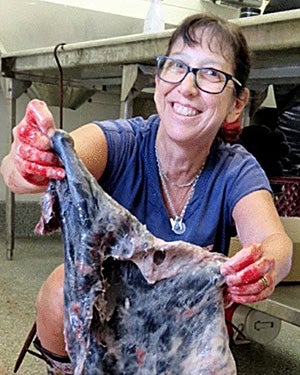
Lisa Natanson, Ph.D. ’90, has been an advisory editor for Environmental Biology of Fishes since 2021. In 2020, she retired from NOAA’s Northeast Fisheries Science Center in Narragansett, R.I. Her research there began in 1984 and focused on the life history of sharks.
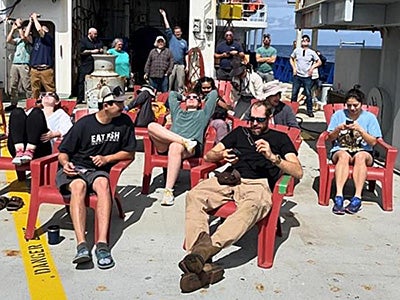
GSO scientists aboard the R/V Roger Revelle for a month-long cruise in the Pacific were among the first in the Northern Hemisphere to see the total solar eclipse in April. The team, led by GSO Professor Katie Kelley and including principal investigator Rob Pockalny, Ph.D. ’91, was mapping the seafloor about 400 miles southwest of Mazatlán, Mexico, when the eclipse began almost 20 minutes before reaching the mainland. The event was reported in The New York Times that day, and you can read more about seeing the eclipse, the response of phytoplankton and the cruise on the GSO website or at @scienceatsea on Instagram.
The Oceanography Society posted their first-ever special issue on building diversity, equity, and inclusion in the ocean sciences. Catalina Martinez, ’97, M.S.’00, M.M.A.’02, M.B.A.’14, equity advisor for NOAA Ocean Exploration, was a special issue guest editor and also contributed to several articles. Jorge Vazquez-Cuervo, M.S. ’84, Amy Bower, Ph.D. ’88, and Lesley Smith, Ph.D. ’11, also were co-authors on several articles.
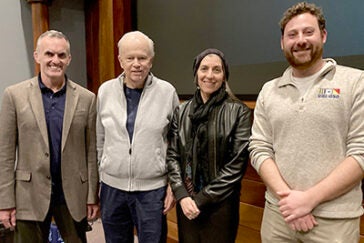
In March, Christopher Reddy, Ph.D. ’98, spoke on “Communicating Science in a Crisis.” Chris works on oil spills and other environmental crises and communicates with stakeholders and the public, experiences he describes in his new book, Science Communication in a Crisis: An Insider’s Guide. Introductions were made by Dean Paula Bontempi, Ph.D. ’01, and Matt Dunn, Ph.D.’23. (Right, from left: Reddy, Prof. Emeritus Jim Quinn, Bontempi and Dunn.)
2000s
The January issue of Rhode Island Monthly has an interview with Dean Paula Bontempi, Ph.D. ’01, about her career path, Bay Campus revitalization, preparing students to work in the blue economy, UFO sightings, how much she loves living in Rhode Island and more.
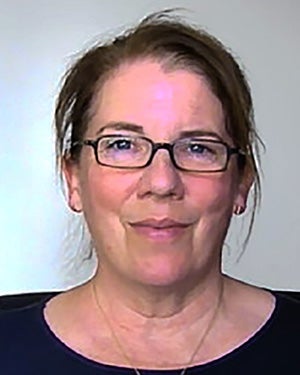
On March 8, Bronwyn Cahill, Ph.D. ’06, of the Leibniz Institute for Baltic Sea Research Warnemünde in Berlin, gave a virtual talk as part of the GSO Physical Oceanography Seminar series. Her talk, “Deconstructing co-occurring marine heatwave and phytoplankton bloom events in the Western Baltic Sea in 2018,” was recorded and is available on the GSO YouTube channel.
2010s
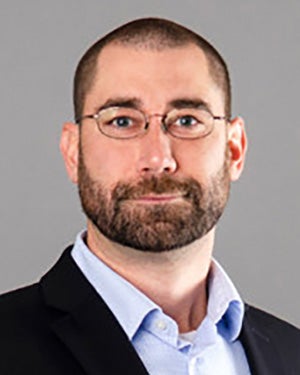
Matt Horn, Ph.D.’11, joined the GSO Advisory Council. The council is charged with advising GSO about growth strategies and promoting the school worldwide. Horn is the business unit lead and a member of the Division Leadership Team for RPS Ocean Science, a Tetra Tech Co. He joins fellow GSO graduates on the council Stephen Greenlee, M.S. ’82, and Barclay Collins, M.S. ’74, Ph.D. ’78 (emeritus).
Conor McManus, M.S. ’12, Ph.D. ’17, chief at the Rhode Island Department of Environmental Management’s Division of Marine Fisheries, gave a presentation to a Rhode Island legislative commission entitled “Science and Management of the Narragansett Bay Quahog: A Review,” as it investigates reasons for declining numbers of quahogs.
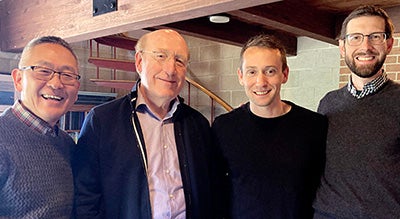
On April 5, Brandon Reichl, Ph.D. ’15, gave the weekly Physical Oceanography Seminar at GSO, a talk entitled “Improved representation of upper ocean vertical mixing in equatorial regions in ocean climate models.” Brandon works at the NOAA Geophysical Fluid Dynamics Laboratory, on the grounds of Princeton University, and his research uses large scale open ocean models to look at vertical mixing and climate change. Fellow Ginis lab graduate, Mike Bueti, Ph.D.’14, came from Providence to attend the seminar. (Pictured, from left: GSO professors Hara and Ginis, Reichl and Bueti)
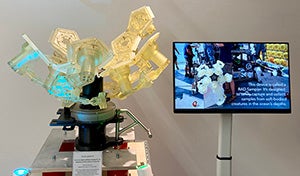
Come to the lobby of GSO’s Ocean Science and Exploration Center to see the Rotary Actuated Dodecahedron Project or RAD sampler. It is just one of the new technologies developed by URI Associate Professor of Ocean Engineering Brennan Phillips, Ph.D. ’16, and 15 other scientists at six different institutions to study fragile deep-sea organisms.
Jacob Balcanoff, M.S. ’16, is a brewer for Harpoon Brewing Company in Boston, Mass.

An assistant project scientist at Scripps Institution of Oceanography, UCSD, Yackar Mauzole, M.S. ’14, Ph.D. ’17, was married in spring 2023 in France.
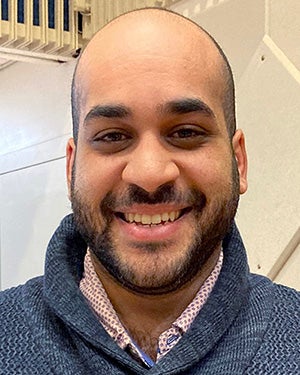
Steven Tadros, M.O. ’17, outreach coordinator and interim tribal relations manager at Avangrid, presented at a workshop on “Offshore Wind: Discussing the Realities, Dispelling the Myths, and Creating a Path to Climate Justice” at the Rhode Island Land and Water Conservation Summit on March 9. One of his co-presenters was GSO Senior Marine Research Scientist Emerita Barbara Sullivan-Watts who works on climate justice issues.
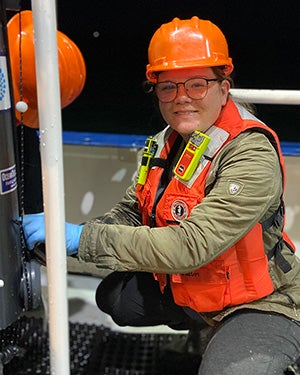
In April, Endeavor departed for the Gulf of Maine and stations in Penobscot Bay for the research cruise EN714. Christine Gardiner, M.S. ’19, conducted water column sampling for mercury, perfluoroalkyl and polyfluoroalkyl contaminants for an NSF grant. She is the lab manager for Celia Chen, M.S. ’86, at Dartmouth College.
2020s
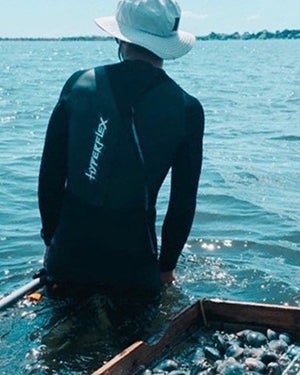
On February 17, at the United Theater in Westerly, R.I., the panel on “Cracking the Shellfish Code: A talk and tasting”, part of the Eating with the Ecosystem series, featured Nick Celico, M.O. ’20, who works for the Quonnie Fish Co.
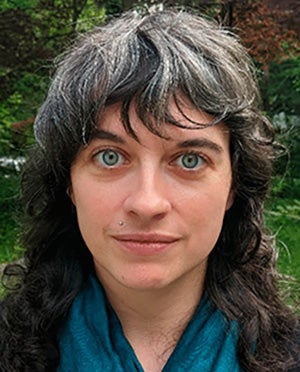
One of six 2023 Rising Stars in Environmental Research recognized by the journal American Chemical Society Environmental Au, Carrie McDonough, Ph.D. ’17, was noted for her research at Carnegie Mellon University on “describing mechanisms driving the uptake and accumulation of organic contaminants, such as per/polyfluoroalkyl substances (PFAS) in living organisms.”
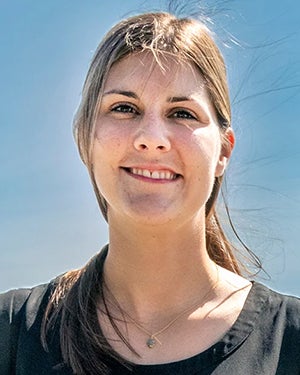
Victoria Fulfer, M.S. ’21, Ph.D. ’24, was interviewed by Rhode Island PBS about her work in Narragansett Bay and how the plastics found there affect people and marine organisms.
Joseph A. Langan, Ph.D. ’21, has a new position as a research fish biologist with the NOAA Great Lakes Environmental Research Laboratory in Ann Arbor, Mich. He will also continue his work on salmon in the Pacific and Arctic, as it fits in with his new projects.
For his postdoc at Woods Hole Oceanographic Institution, Ben Grassian, Ph.D. ’22, is developing AI tools to examine large datasets from the deep sea to learn how animals are living down there.
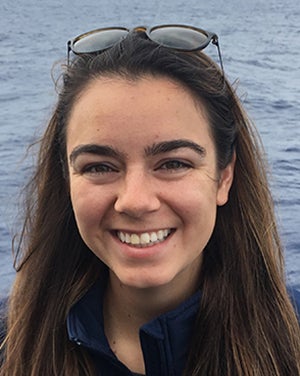
Basia Marcks, Ph.D. ’23, completed her Knauss Fellowship year in D.C. with the Subcommittee on Water, Wildlife and Fisheries in the House Committee on Natural Resources. U.S. Representative Jared Huffman publicly thanked her and recognized her efforts for the committee during her last committee meeting.
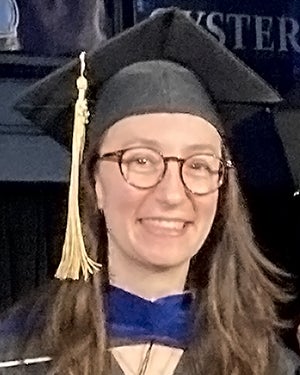
Recent graduate Sarah Nickford, Ph.D. ’23, is spending this year in Washington, D.C. as a John A. Knauss Marine Policy Fellow. Sarah has been placed in the executive branch of the U.S. government, working with the National Oceanic and Atmospheric Administration’s U.S. Integrated Ocean Observing System Office.
Theodore “Ted” Benttinen
Ted served as a marine technician on more than 50 research cruises aboard the R/Vs Trident and Endeavor from 1975 through 1985. He passed away on December 10, 2023. Bill Hahn, who was the marine superintendent when Ted worked at GSO, noted “While his position was a marine technician his education was that of a scientist. This gave him unique appreciation for what the researchers needed. On several occasions I loaned him to a principal investigator to work up data that was collected on a cruise.” In 1985, Ted left GSO and changed careers to finance. His funeral was December 16, 2023, in Providence, R.I.
Kathleen “Kathy” Ann Dadey, Ph.D. ’91
Kathy passed away on January 18 in Parma Heights, Ohio. In 1983, she completed her M.S. in ocean engineering. She transitioned to GSO and worked with Professor Margaret Leinen, Ph.D. ’80. Kathy did a post-doc at the University of Hawaii, then worked for the EPA and the U.S. Army Corps of Engineers before moving to Ohio in 2021 for health reasons. Chris Mann shared his remembrances: “At GSO, she was known as Kathy. She was always quite a presence on campus and off. Her quick laugh, keen intelligence and wit, and exuberant personality were hallmarks.…Some of my favorite memories of Kathy, and I think this will strike a chord with alums of that era, are on the dance floor, where she exuded incredible energy, creativity, and grace. In dancing, as in other endeavors, the rest of us were often left to try to keep up as best we could.”
David “Dave” Charles Egelson, M.S. ’81
Dave passed away on March 21, 2023, in Jersey City, N.J. He was a student of the late Professor Robert McMaster. After graduation, Dave went to work at Mobil Oil in Dallas, Texas. He next moved to Conn. and worked for a natural gas trading firm out of New York. Dave was a very good friend of Lloyd and Lorrie DeKay (both M.S. ’82) since their time together at GSO. On hearing of his passing, they remarked, “He was ever cheerful and humorous despite his Parkinson’s disease that started a few years ago. He was a great person, and the world is poorer for his passing.” There was a memorial service on April 20 in Falmouth, Mass.
Robert “Bob” Fournier, Ph.D. ’68
Bob was a student of the late Professor Ted Smayda, passed away at his home in Timberlea, Halifax, Nova Scotia on December 10, 2023. On his arrival at GSO in fall 1963, he struck up a friendship with Don Gordon, M.S. ’64 and they remained friends and colleagues until Bob’s death 60 years later. By 1971, they both had faculty positions in Halifax, Nova Scotia, and established the Halifax-Bermuda Section program that monitored oceanographic conditions throughout the water column along this transect every three months. Bob became well known in Canada not only for his oceanographic expertise, but for excellent science communication. A celebration of his life will take place this year.
Francis J. “Frank” Pickles
Frank passed away on September 24 at the age of 74. He was a long-time marine technician in the lab of the late GSO Professor Dana Kester, and particularly enjoyed going to sea. One memorable cruise was off the coast of Peru in 1984 and included Huasheng Hong, Ph.D.’84, the first GSO student from the People’s Republic of China. He enjoyed being on boats so much that for a while he lived on his boat moored off the beach at the foot of South Ferry Road. He was a resident of Warwick, R.I. A “Remembrance of his Life” was held on November 3, 2023, at the Narragansett Café.
Gabriel “Gabe” Andrew Vargo, Ph.D. ’76
Gabe died October 11, 2023, in St. Petersburg, Fla. He was a student of the late GSO professor Ted Smayda and leaves behind his wife Sandra “Sandy” L. Vargo, Ph.D. ’74. After obtaining their degrees, Gabe and Sandy moved to St. Petersburg, where he was an associate professor of biological oceanography at University of South Florida (USF). Gabe volunteered at the local Birds of Prey program where they cared for raptors and brought them into schools, and he also raised orchids. At GSO, Gabe was known for his calmness, even in the most hectic situations at Professor Ted Smayda’s “Bunker C” laboratory or at the Marine Ecosystem Research Laboratory, where he managed the “wet lab,” and for also his willingness to mentor new graduate students. When notified of his passing. Gabe’s GSO lab mates, his USF students and his volunteer co-workers all raved about his kindness, his intellect, his support of women in science and his ability to encourage and challenge students. Many said “He was the original, ‘be calm and carry on’ person.”
Clifton H. Woodmansee
Clif, GSO’s maintenance department’s HVAC shop supervisor, passed away on November 13, 2023. David Palazzetti, director of Narragansett Bay Campus facilities, noted: “If you met Clif, you would not forget him! Clif was one of the most talented, hardworking and overall genuine individuals I ever had the privilege of working alongside. At the Narragansett Bay Campus, he made huge improvements in the operation of decades-old mechanical systems and had them running better than the day they were installed. You may not have realized the impact Clif had on this campus, but we all appreciated the result of his efforts.”

